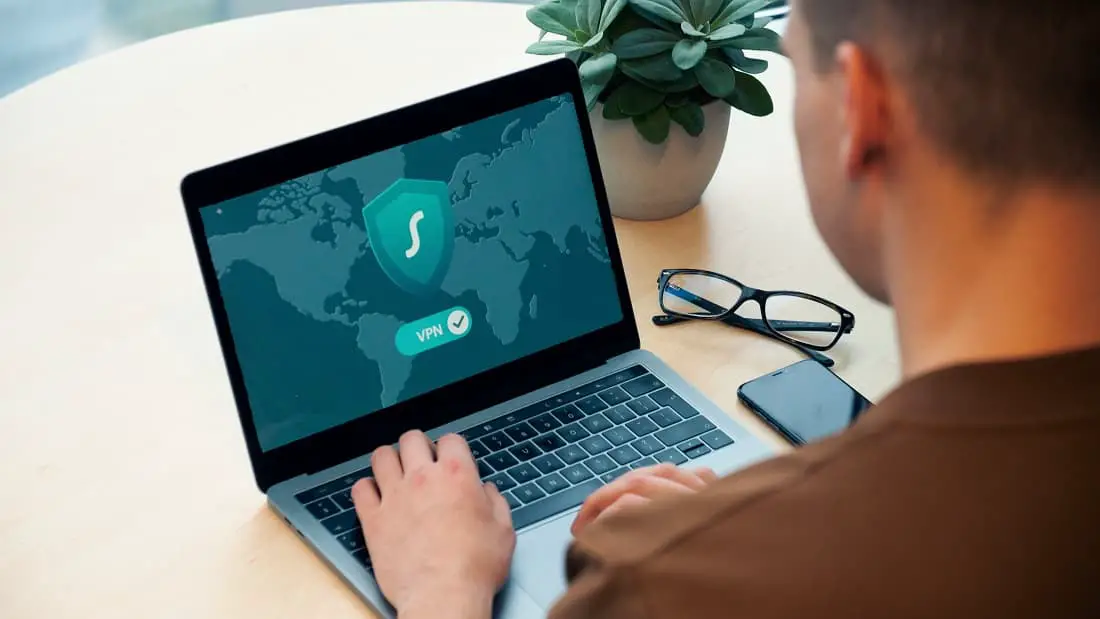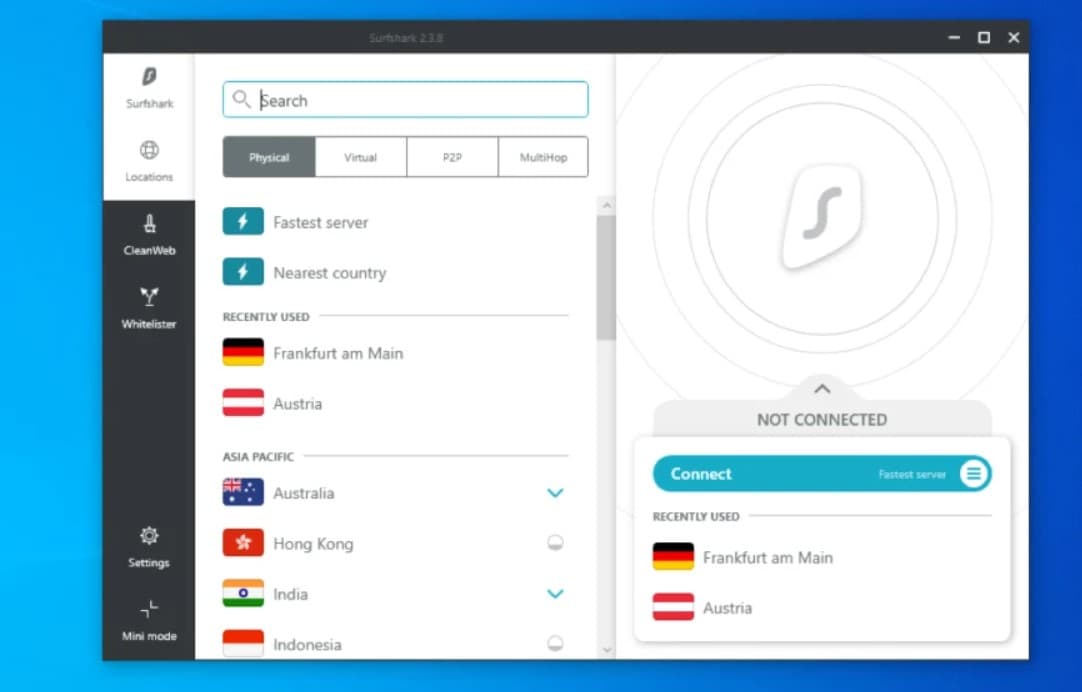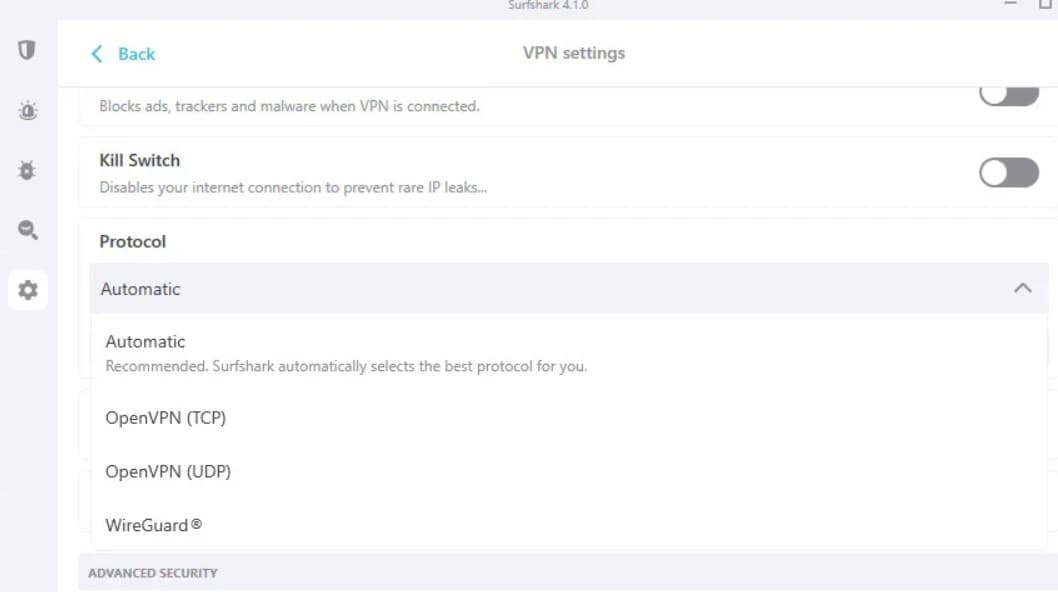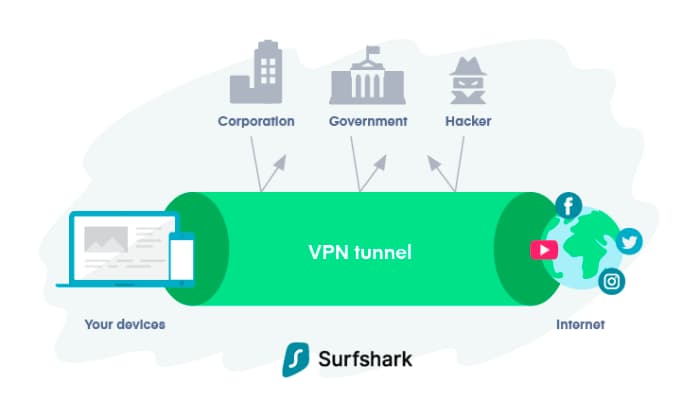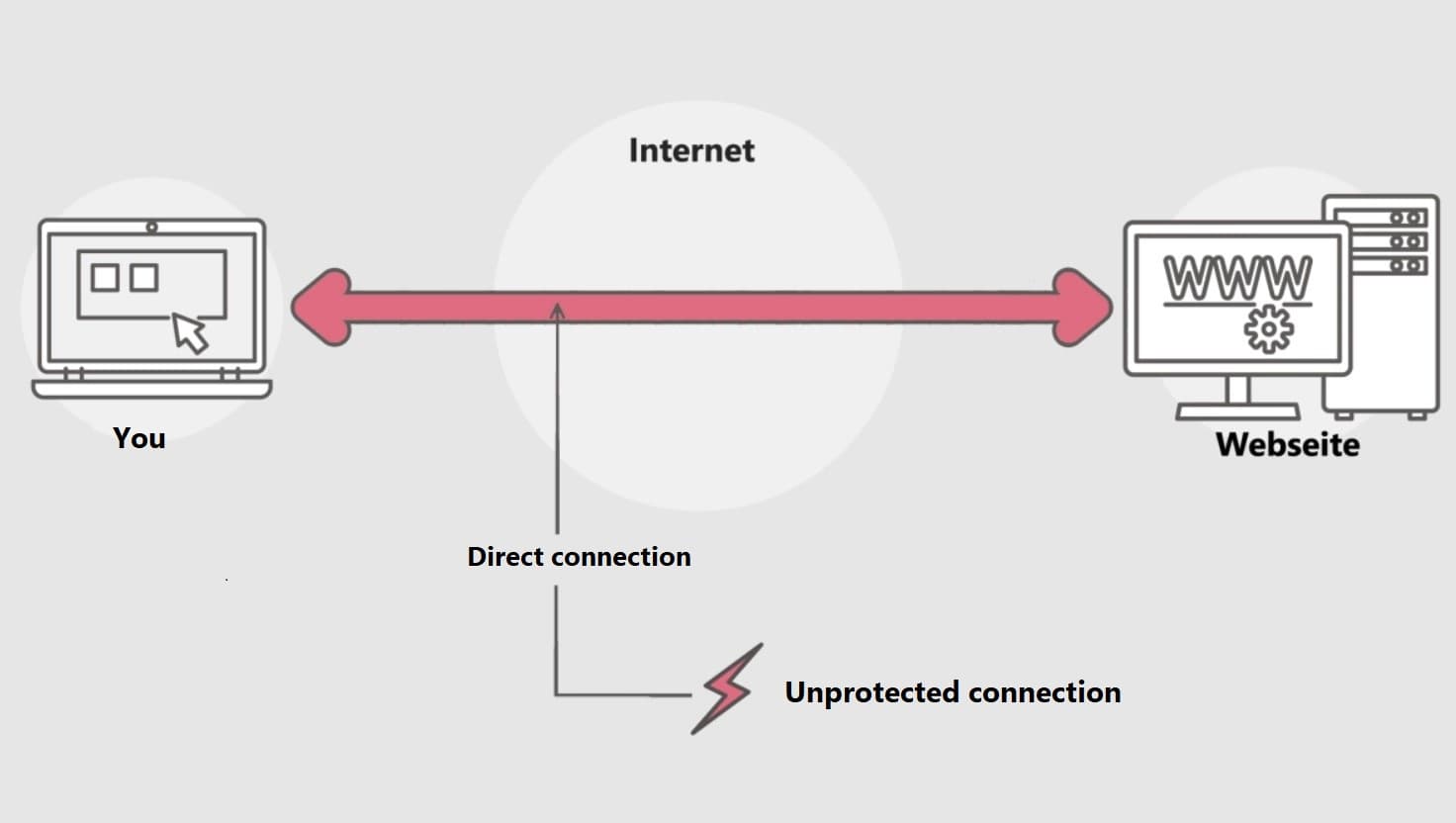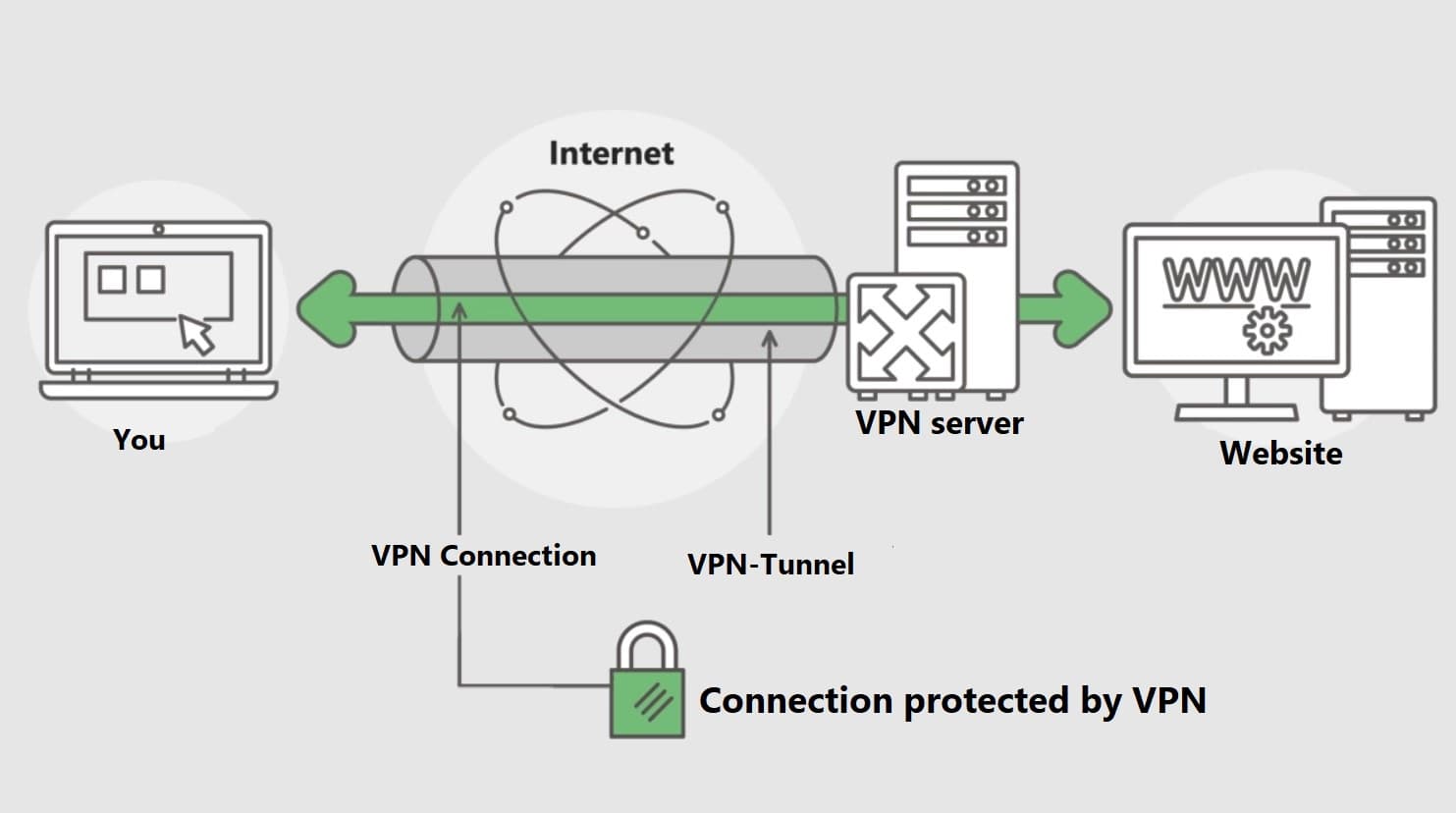A VPN promises security and anonymity on the Internet. Using a VPN encrypts your internet traffic and disguises your online identity. If you want to hide your IP address and surf the Internet anonymously or bypass Geobloack restrictions, you need a secure and fast VPN. Here in this article, we explain what a VPN is and how the technology behind it works.
What a VPN is?
A VPN stands for Virtual Private Network it redirects your internet traffic via a secure tunnel and encrypts your connection. So no one even your internet service provider no longer track your activity or see from which location you are currently accessing the internet. Let’s learn more about VPN how the technology behind it works and what advantages and disadvantages they have.
A virtual private network (VPN) is a technology that creates a safe and encrypted connection over a less secure network, such as the internet.
However, we will first clarify a few important technical terms from the world of VPNs.
VPN-Client
A VPN client is the app or program that establishes the encrypted connection to the VPN server. Here you can set the target countries and various other functions with just a few clicks. VPN clients are available for all common operating systems and devices, even for smart TVs or routers.
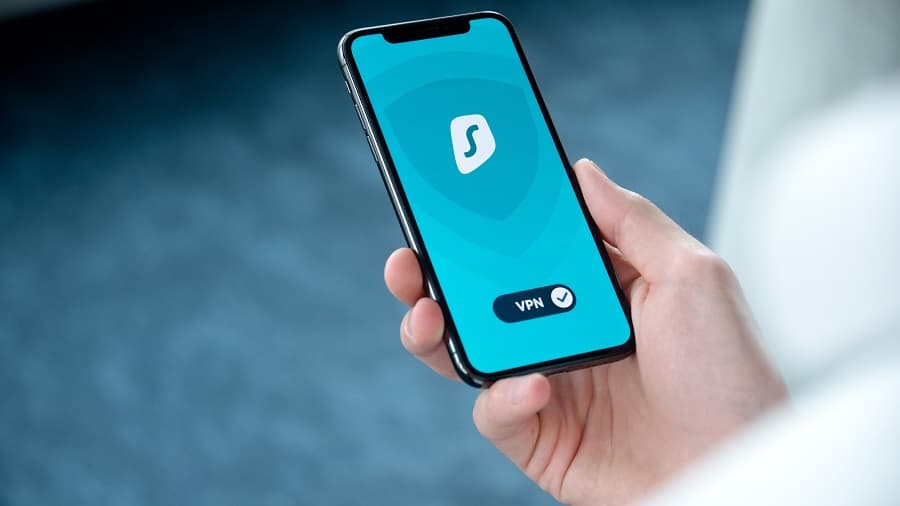
VPN-Server
The VPN server is the first port of call for your data. All your data is sent to this server in encrypted form and sent on decrypted by it. It also determines your IP address, which is crucial for bypassing country blocks.
VPN Protocol
The VPN protocol determines the method by which your data is encrypted. Each VPN provider supports different protocols.
VPN-Tunnel
The VPN tunnel is the protected connection between your device (the VPN client) and the VPN server.
A VPN tunnel connects your device to another network in which your IP address is hidden and all the data your generate while surfing the web si encrypted.
VPN provider
The VPN provider or VPN service is the company that provides you with the VPN service. Put more simply, this is the store that gets the cash from you. For example, Express VPN, NordVPN, surfshark VPN, Cyber Ghost and more.
VPN-Router
VPN routers are special types of routers that protect all devices on your home network that are connected to the router via a VPN.
Kill-Switch
The kill switch (or network lock) ensures that you never surf unprotected when the VPN app is active. This is important because sometimes lines can go down, servers can go down, or other things can affect your connection.
How VPN works?
First, let’s take a look at how a VPN works in principle.
When you connect to the internet, your home will look something like this, as you can see in the diagram below. You have an internet service provider, access data for this is stored on the router and all your devices connect to the router via WLAN or LAN. And your computer can access the internet and you can surf, stream, download or play online games and more.
But No matter how you go online, in all cases you are initially completely unprotected on the net. Your IP address reveals your identity and your data is unencrypted.
Now look at the diagram below, when you use a VPN service, you still use the same line to the Internet, but your entire data stream is processed via your VPN provider. You can imagine it like a tunnel, which is why people often talk about VPN tunnels.
In short, your IP address serves as an identifier that reveals your identity, and this can be disguised by a VPN server that anonymizes and encrypts your data traffic. VPN software establishes an encrypted internet-to-VPN server via which all your data traffic is then securely transmitted. It doesn’t matter whether you check email, visit websites or use streaming services your data traffic is protected via an encrypted connection to the VPN server.
The advantages of a VPN
The essential advantages of a ” Virtual Private Network “ are already hidden in the name: ” Virtual ” and ” Private “.
Anonymity (Virtual)
With a VPN client, you can connect to a virtual network, Here “Virtual” because you are not physically connected to this network but via the VPN client. A Good thing about the virtual network is that you never reveal your own IP address. In addition by selecting the server and country with your VPN client, you determine from which IP address range you are assigned an IP address. You can virtually change your location digitally and thus bypass country blocks (also known as geo-blocking).
Security (Private)
All data exchanged between the end device (VPN client) and the VPN provider (VPN server) is transmitted in encrypted form. As a rule, this is 256-bit encryption, which is not so easy to crack without enormous effort. This protects you from spying on your data, which is extremely important, especially with public WLANs or hotspots.
Aside from these two big benefits, there are many small conveniences to surfing the web that make a VPN stand out. For example, you can use a VPN to Bypass Geo-locked Content and watch foreign content on streaming services such as Netflix that are not available in this country.
If you are a gaming user using a VPN while playing Games have some advantages that include protection from DDoS attacks or angry players trying to gain access to your home network.
You can easily surf in insecure networks and don’t have to worry. But you can also override any throttling by your Internet provider.
The disadvantages of a VPN
Using a VPN can also have its downsides and minor issues and we don’t want to hide these possible disadvantages from you.
Loss of speed
Among other things, a VPN can ensure that your Internet speed is noticeably slowed down. Some VPNs slow down web browsing depending on server location, while others generally achieve low ping. Other VPNs, on the other hand, can even increase your internet speed.
Creating and maintaining the VPN will take a certain amount of bandwidth, which slows connection speeds.
Website Blocking
With some VPNs, you may still have trouble accessing certain websites. Streaming sites in particular are known to block IP addresses used by VPN programs. As a result, you will be denied access to the site with an active VPN. This can also happen with online payment services. However, a good VPN should be able to bypass most of these blocks.
Dropped Connections
Even the best VPN can sometimes drop the connection. When a VPN loses connectivity, it is not the same as merely losing Wi-Fi and being disconnected from the internet.
Here is a video explaining a few advantages and disadvantages of using a VPN.
What should I consider with a VPN?
Overall Not all VPN service providers are created equal, many offer different connection speeds, among other features and services. If you are planning to buy a best VPN service, make sure to thoroughly research the provider to protect yourself from potential scams and get the best deal.
Possible decision criteria when choosing a VPN
- Advanced security features: kill switch, double VPN, multi-hop, choice of multiple protocols
- Data protection: Strict no-log policy, secure provider location
- Platforms: availability, number of usable devices, number of simultaneous connections
- Servers: number, available countries, locations, optimized servers
- Features: auto start, direct connection to the best server, built-in ad blocker
- Customer Service: availability of the support service
- Price: subscription models, payment periods, monthly prices
VPNs don’t cost a fortune. There are always promotions from different providers, so you can get a full-fledged VPN for less than two dollars or euros a month. If you want to use a VPN for a short time or if you don’t want to spend any money in principle, we will help you with an overview of the best free VPN services.
FAQ:
Reasons why you should use a VPN service
- A VPN brings anonymity and security. But there are many other reasons why you should always use a VPN service.
VPNs protect public networks,
- If you connect to a free hotel WiFi or use the hotspot, with a VPN you protect your end device from prying eyes.
Access to Free Live TV
- A VPN allows access to Geo-blocking content, such as you can unblock USA Netflix from India or somewhere else.
VPN protects downloads
Whenever you download data from the Internet in the form of torrents, this procedure harbors some dangers. Even if you’re not doing illegal downloads, it might look like this to outsiders. The anonymity that the VPN service offers you is a clear advantage here.
Also read:
- Free VPN and Paid VPN, what is the real difference between them
- What Makes a VPN Different from a Proxy Network? explained
- Introduction of Password Manager App and its Benefits
- 5 Best Cybersecurity Tips to Protect Your Windows PC From hackers
- Defined Relationship Between Network Security and Internet Security
